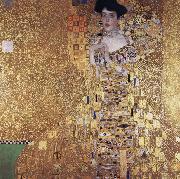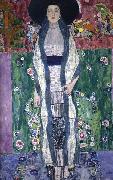
|
Egon Schiele
|
|||
|
|
|||
| 1890-1918 Austrian Egon Schiele Gallery Egon Schiele (12 June 1890 ?C 31 October 1918) was an Austrian painter, a protege of Gustav Klimt, and a major figurative painter of the early 20th century. Schiele's body of work is noted for the intensity and the large number of self-portraits he produced. The twisted body shapes and the expressive line that characterize Schiele's paintings and drawings make the artist an early exponent of Expressionism, although still strongly associated with the art nouveau movement (Jugendstil). The most important collection of Schiele's work is housed in the Leopold Museum, Vienna. In 1907, Schiele sought out Gustav Klimt. Klimt generously mentored younger artists, and he took a particular interest in the gifted young Schiele, buying his drawings, offering to exchange them for some of his own, arranging models for him and introducing him to potential patrons. He also introduced Schiele to the Wiener Werkstätte, the arts and crafts workshop connected with the Secession. In 1908 Schiele had his first exhibition, in Klosterneuburg. Schiele left the Academy in 1909, after completing his third year, and founded the Neukunstgruppe ("New Art Group") with other dissatisfied students. Sitzender weiblicher Akt, 1914Klimt invited Schiele to exhibit some of his work at the 1909 Vienna Kunstschau, where he encountered the work of Edvard Munch, Jan Toorop, and Vincent van Gogh among others. Once free of the constraints of the Academy's conventions, Schiele began to explore not only the human form, but also human sexuality. At the time, many found the explicitness of his works disturbing. | |||
|
|
|||
|
Gustav klimt new17/Egon Schiele-882966.jpg Painting ID:: 47880 |
mk189 Water Snakes 1904 reworked 1907 | ||
|
|
|||
|
Anthony Van Dyck
|
|||
|
|
|||
| Dutch 1599-1641 Anthony Van Dyck Locations Flemish painter and draughtsman, active also in Italy and England. He was the leading Flemish painter after Rubens in the first half of the 17th century and in the 18th century was often considered no less than his match. A number of van Dyck studies in oil of characterful heads were included in Rubens estate inventory in 1640, where they were distinguished neither in quality nor in purpose from those stocked by the older master. Although frustrated as a designer of tapestry and, with an almost solitary exception, as a deviser of palatial decoration, van Dyck succeeded brilliantly as an etcher. He was also skilled at organizing reproductive engravers in Antwerp to publish his works, in particular The Iconography (c. 1632-44), comprising scores of contemporary etched and engraved portraits, eventually numbering 100, by which election he revived the Renaissance tradition of promoting images of uomini illustri. His fame as a portrait painter in the cities of the southern Netherlands, as well as in London, Genoa, Rome and Palermo, has never been outshone; and from at least the early 18th century his full-length portraits were especially prized in Genoese, British and Flemish houses, where they were appreciated as much for their own sake as for the identities and families of the sitters. | |||
|
|
|||
|
gustav klimt new21/Anthony Van Dyck-546288.jpg Painting ID:: 59073 |
mk265 portrait of adele bloch bauer l 1907 new york neue galerie. | ||
|
|
|||
|
Anthony Van Dyck
|
|||
|
|
|||
| Dutch 1599-1641 Anthony Van Dyck Locations Flemish painter and draughtsman, active also in Italy and England. He was the leading Flemish painter after Rubens in the first half of the 17th century and in the 18th century was often considered no less than his match. A number of van Dyck studies in oil of characterful heads were included in Rubens estate inventory in 1640, where they were distinguished neither in quality nor in purpose from those stocked by the older master. Although frustrated as a designer of tapestry and, with an almost solitary exception, as a deviser of palatial decoration, van Dyck succeeded brilliantly as an etcher. He was also skilled at organizing reproductive engravers in Antwerp to publish his works, in particular The Iconography (c. 1632-44), comprising scores of contemporary etched and engraved portraits, eventually numbering 100, by which election he revived the Renaissance tradition of promoting images of uomini illustri. His fame as a portrait painter in the cities of the southern Netherlands, as well as in London, Genoa, Rome and Palermo, has never been outshone; and from at least the early 18th century his full-length portraits were especially prized in Genoese, British and Flemish houses, where they were appreciated as much for their own sake as for the identities and families of the sitters. | |||
|
|
|||
|
gustav klimt new21/Anthony Van Dyck-582676.jpg Painting ID:: 59075 |
mk265 portrait of adele bloch bauer ll 1912 privte collection. | ||
|
|
|||
|
Also Buy::. For Following Paintings / Artists / Products, Please Use Our Search Online: |










